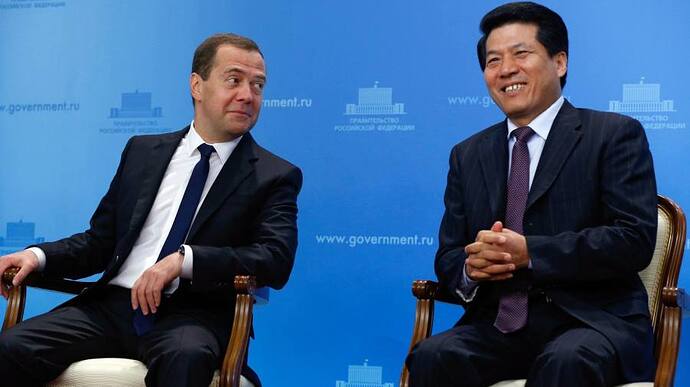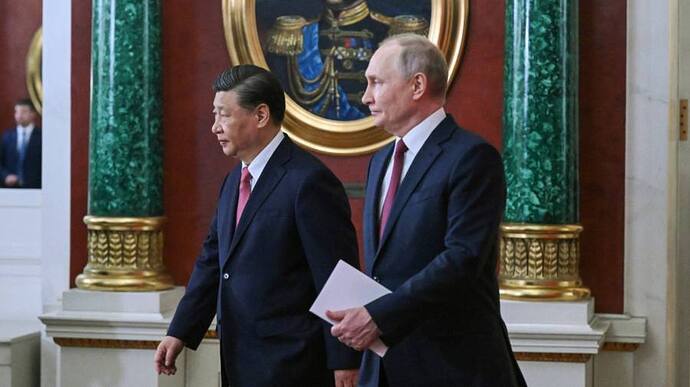The War in Ukraine, also known as the Russo-Ukrainian War, is an ongoing conflict between Ukraine and the Russian Federation that started in 2014. The war began as a result of the Euromaidan protests in Ukraine, which resulted in the ousting of President Viktor Yanukovych, a move that was seen as pro-Western. This move was opposed by Russia, who saw Ukraine as its sphere of influence.
The conflict has been characterized by various acts of aggression, including the annexation of Crimea in March 2014, the ongoing insurgency in eastern Ukraine, and the covert and overt support of separatist rebels in the region. The war has resulted in the deaths of thousands of people, both civilians and members of the military.
Background
The roots of the conflict can be traced back to Ukraine’s historical ties to Russia. Ukraine gained independence from the Soviet Union in 1991, but the two countries have long been closely connected by shared histories, cultures, and languages. This connection has often been fraught with tension, and Ukraine’s position between the West and Russia has made it a geopolitical battleground.
The conflict also has its roots in Ukraine’s push for closer ties with the European Union (EU) and its move towards a more pro-Western stance. This was seen as a direct challenge to Russia’s interests in the region. The Euromaidan protests in 2014, which were sparked by Yanukovych’s decision to pull out of an association agreement with the EU in favor of closer ties with Russia, led to his ousting and the subsequent annexation of Crimea by Russia.
Annexation of Crimea
In February 2014, pro-Russian separatists began seizing government buildings in Crimea, an autonomous republic within Ukraine. This followed the ousting of Yanukovych and the installation of a pro-Western government in Kiev. The separatists were backed by Russian forces, who were soon deployed to the region.
In March 2014, a referendum was held in Crimea, which was recognized as illegal by most of the international community. The referendum resulted in the annexation of Crimea by Russia, which was also condemned by the international community.
The annexation of Crimea was a major turning point in the conflict, and it was seen as a direct challenge to Ukraine’s sovereignty and territorial integrity. It also led to the imposition of sanctions by the West on Russia, which has had a significant impact on the Russian economy.
Insurgency in Eastern Ukraine
Following the annexation of Crimea, pro-Russian separatist rebels began fighting Ukrainian forces in eastern Ukraine. The rebels declared the creation of autonomous regions in the Donetsk and Luhansk regions, which became known as the Donetsk People’s Republic and the Luhansk People’s Republic.
The fighting in eastern Ukraine has been marked by various acts of aggression, including the downing of Malaysia Airlines Flight MH17 in July 2014, which killed all 298 people on board. The aircraft was shot down by a Buk missile that was fired from territory controlled by pro-Russian rebels. The incident was widely condemned and led to increased sanctions on Russia.
The conflict in eastern Ukraine has been ongoing since 2014, and despite ceasefires and peace agreements, it has continued to simmer. The conflict has resulted in the deaths of thousands of people, including civilians, and has led to the displacement of millions of people.
International Response
The international response to the War in Ukraine has been varied. The West has largely condemned Russia’s actions in the region and has imposed sanctions on Russia. The sanctions have had a significant impact on the Russian economy, but they have not led to a resolution of the conflict.
The United Nations has also been involved in attempts to resolve the conflict. In 2015, the Minsk II agreement was signed, which was aimed at ending the fighting in eastern Ukraine. The agreement called for a ceasefire, the withdrawal of heavy weapons, and constitutional changes in Ukraine. However, the agreement has not led to a lasting ceasefire.
Conclusion
The War in Ukraine is an ongoing conflict that has resulted in the deaths of thousands of people and has had a significant impact on the region. The conflict has its roots in Ukraine’s move towards a more pro-Western stance, which was seen as a challenge to Russia’s interests in the region. The annexation of Crimea and the insurgency in eastern Ukraine have led to increased tensions between Ukraine and Russia, as well as between the West and Russia. Despite numerous attempts to end the conflict, it remains unresolved.
Disclaimer
6do Encyclopedia represents the inaugural AI-driven knowledge repository, and we cordially invite all community users to collaborate and contribute to the enhancement of its accuracy and completeness.
Should you identify any inaccuracies or discrepancies, we respectfully request that you promptly bring these to our attention. Furthermore, you are encouraged to engage in dialogue with the 6do AI chatbot for clarifications.
Please be advised that when utilizing the resources provided by 6do Encyclopedia, users must exercise due care and diligence with respect to the information contained therein. We expressly disclaim any and all legal liabilities arising from the use of such content.



















